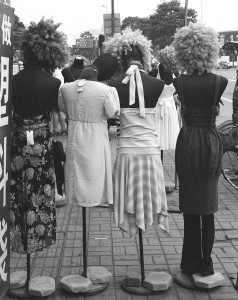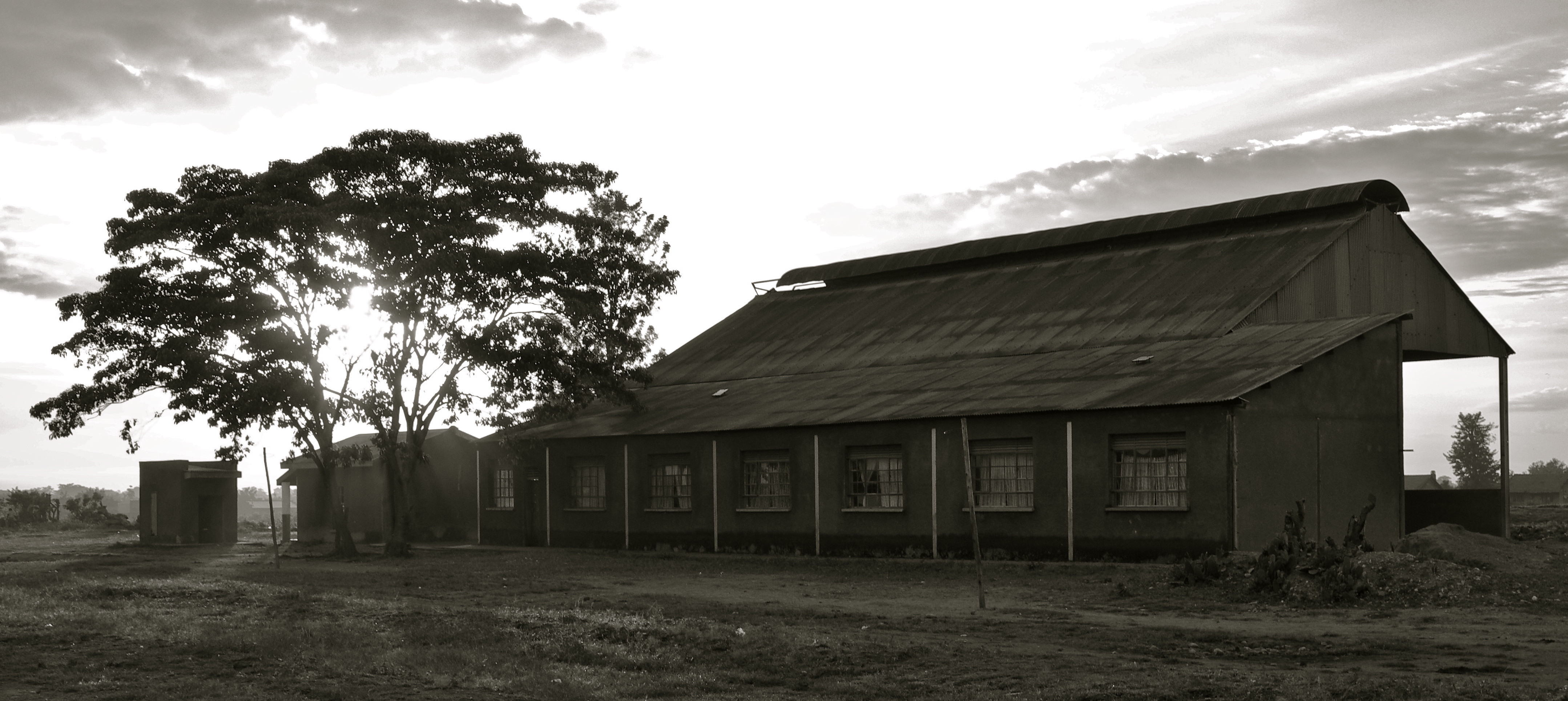I am not sure if awe inspiring authentic communities can be defined, but recent travels lead me to believe that I might know them when I see them. To truly witness such community is to become a part of the whole, if only for moments here and there. Authentic communities do exist—and they must survive and grow and thrive if all of us are going to flourish.
Last month in Haiti I joined a rural community coming together to build twenty latrines for twenty individual families. All members of the community contributed to the completion of each and every latrine.
Not one latrine would have been completed without the involvement of all of us in community. Community is essential to surviving in such remote, underdeveloped circumstances—but it didn’t feel like mere survival. It felt like real unity.
In December I witnessed a community in northern Ghana that welcomes strangers banished from their home communities because of witchcraft accusations. This community invites alleged witches to become part of the community even though giving refuge will be a burden. The struggle of these individual outsiders becomes the struggle of the community as a whole. And the solutions for the refugees become solutions for the community.
 Before that I worked at a school in Uganda struggling for recognition and legitimate placement in the larger community. Kasese Humanist Primary School is one of three humanists schools in a nation that requires students to answer questions like, “Who is your Lord and savior?” in order to graduate from school. Yet, at our going away party, a member of the board of education told us and the gathered crowd of faculty, students, and parents that he welcomed the school and its contribution to the welfare of the community. The chief of the village similarly thanked us for coming and supporting a school that has done so much for the children of his community.
Before that I worked at a school in Uganda struggling for recognition and legitimate placement in the larger community. Kasese Humanist Primary School is one of three humanists schools in a nation that requires students to answer questions like, “Who is your Lord and savior?” in order to graduate from school. Yet, at our going away party, a member of the board of education told us and the gathered crowd of faculty, students, and parents that he welcomed the school and its contribution to the welfare of the community. The chief of the village similarly thanked us for coming and supporting a school that has done so much for the children of his community.
Communities such as these are novel in my life. I have never experienced such community in the States. That’s not to say they don’t exist in the States. I know they exist, just not in my experience.
To me, community means something more than a group of people with common interests or goals. Community is more even than a support system. A healthy community supports and uplifts every member. A sick community leaves individual members to fend for themselves. Yes, some of the fittest individuals will survive, but no individual can thrive as an island.
Living in an authentic, healthy community means every member is equal in the community. It means meeting each person and saying, “It’s not just your problem. It’s our problem—my problem. We will work on it together.” It means asking of every person, “What do you need to be happy?” That’s what authentic faith communities do. In my opinion, faith communities have traditionally been the primary communities serving in this function.
So, in that sense, it is unfortunate that institutionalized religions are losing numbers. Raised in a nonreligious household—one of the growing numbers of families dropping out of institutionalized religious communities—I’m sure has contributed to why I lacked the sense of an authentic community as a child. Maybe I’m wrong. Maybe my experience is an anomaly. I would like to think so. But I don’t think so. I think we in the States are largely losing authentic community. And the communities we do have are often created from the inside out by a process of exclusion. The lines of who is in are defined by who is out. In terms of community, how authentic is that?
What we need today are not fundamentally exclusive communities, but authentic communities that participate in forging authentic community with others. Christians with Hindus. Jews with Muslims. Religious with atheist. Inclusive not exclusive. I’m not suggesting that we erase the lines that makes individual communities unique. I’m not arguing for one homogeneous community. That is impractical and disrespectful to individual dignity. I’m not even recommending that communities stop their private activities. I’m suggesting that disparate communities meet each other as they meet themselves—as equals struggling in the same fight for happiness.
My point is not that we need to boost institutionalized religious numbers. That is not my place nor prerogative. Healthy faith communities create and grow authentic community. But they are not the only healthy communities—and there are certainly faith communities that are anything but healthy. Regardless of faith, healthy, authentic communities heal a violent world—especially communities that unite disparate people. The extinction of healthy communities would entail the extinction of humanity. Humanity might survive and thrive by expanding the scope of authentic community—from supporting and uplifting just us to supporting and uplifting all of us.
This post was originally posted on State of Formation.
